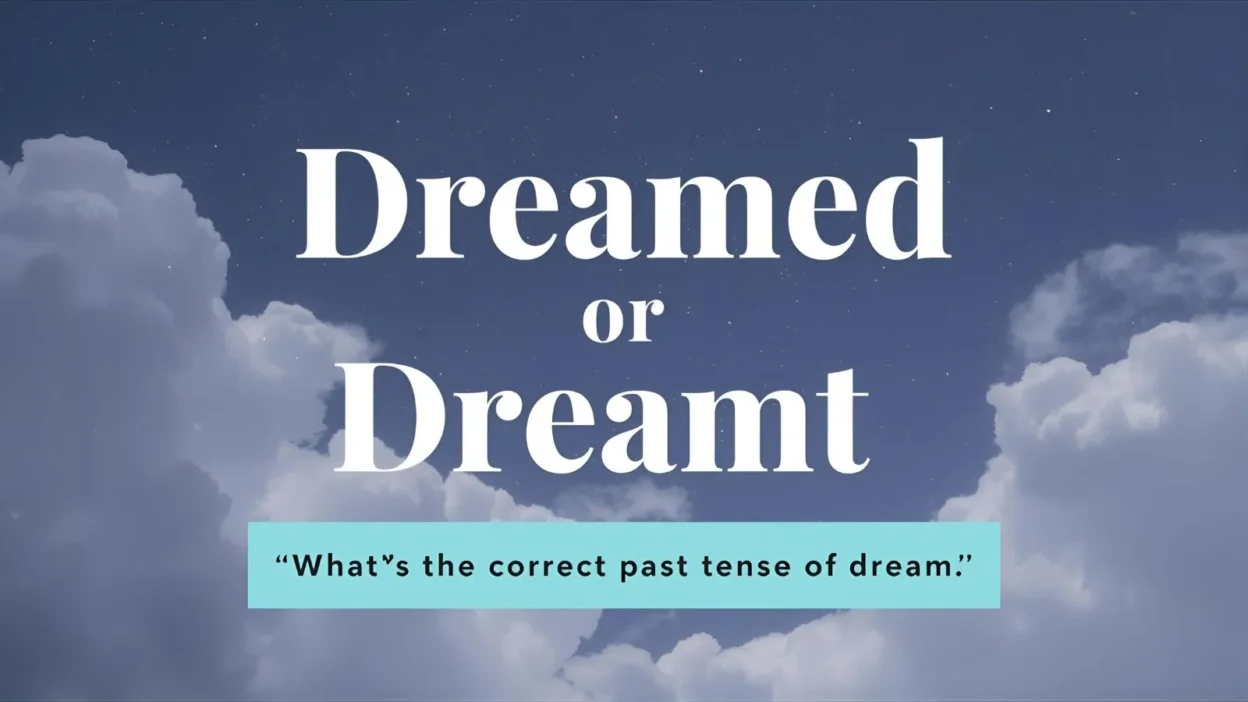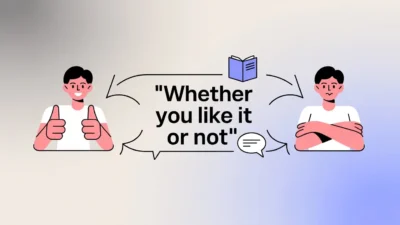Have you ever paused mid-sentence, wondering whether to say “I dreamed” or “I dreamt”? 😅 You’re not alone — even native English speakers get stuck on this one!
If you’re an English learner, writer, or student trying to sound more natural and confident, this guide is for you. I’ll walk you through the difference between dreamed and dreamt, explain which one is correct, and show you how to use each in real-life sentences.
By the end, you’ll never second-guess your choice again — even in your dreams!
💭 Dreamed or Dreamt – Quick Answer
Both dreamed and dreamt are correct past tense forms of dream.
Dreamed → Common in American English.
Example: I dreamed about visiting Paris.
Dreamt → More common in British English.
Example: She dreamt of becoming an artist.
Neither is wrong. The choice depends on style, region, or personal preference.
📜 The Origin of Dreamed or Dreamt
The word dream comes from Old English drēam, meaning “joy” or “vision.”
Historically, many English verbs had irregular endings like –t (learnt, spelt, dreamt).
Over time, American English shifted toward the regular –ed ending for simplicity. That’s why dreamed feels natural in the U.S., while dreamt survives more strongly in the U.K.
🇬🇧🇺🇸 British English vs American English Spelling
| Form | American English | British English |
|---|---|---|
| Dreamed | ✅ Preferred | ✅ Accepted but less common |
| Dreamt | ❌ Rare | ✅ Preferred in everyday use |
In the U.S. → “Dreamed” dominates newspapers, schools, and professional writing.
In the U.K. and Commonwealth countries → “Dreamt” is frequent in casual and literary contexts.
📝 Which Spelling Should You Use?
If writing for a U.S. audience → Use dreamed.
If writing for U.K. or Commonwealth readers → Use dreamt.
If writing globally (business, websites, reports) → Stick with dreamed, as it’s more universally recognized.
⚠️ Common Mistakes with Dreamed or Dreamt
❌ I dreamt about it yesterdayed. → ✅ I dreamt about it yesterday.
❌ She dreamedt of success. → ✅ She dreamed of success.
❌ Mixing tenses: I dreamt I will go. → ✅ I dreamt I would go.
Tip: Only one past form should be used — either dreamed or dreamt, not both together.
📚 Dreamed or Dreamt in Everyday Examples
Email (formal): Last night, I dreamed about a new project idea.
News (journalistic): The athlete dreamt of gold since childhood.
Social Media (casual): I just dreamt the weirdest thing!
Literature (poetic tone): She dreamt of a world beyond the stars.
📊 Dreamed or Dreamt – Google Trends & Usage Data
| Country | Most Common Form | Notes |
|---|---|---|
| United States | Dreamed | Standard in schools, media |
| United Kingdom | Dreamt | Popular in daily speech |
| Canada | Both | Mix of U.S. and U.K. influence |
| Australia | Dreamt | Still widely used |
| India | Both | Learners may prefer “dreamed” |
Global trend: Dreamed is slightly more searched and used online, but dreamt maintains literary and cultural strength in British English regions.
FAQs about Dreamed or Dreamt
Q1: Is “dreamt” outdated?
No. It’s still common in British English and in literature.
Q2: Which form do dictionaries prefer?
Both. Major dictionaries list dreamed and dreamt as correct.
Q3: Can I use “dreamt” in American English?
Yes, but it may sound old-fashioned or poetic.
Q4: Is there a difference in meaning between dreamed and dreamt?
No, only spelling and regional preference.
Q5: What about “daydreamed” or “daydreamt”?
Both exist, but daydreamed is far more common.
Q6: Is “dreamt” the only word ending in –mt?
Yes. It’s one of the rarest English words with that ending.
Q7: Which should I use in business English?
Use dreamed for clarity and global understanding.
Conclusion🌟
So, is it dreamed or dreamt? The short answer: both are correct. The difference lies in region, tradition, and style.
Americans mostly use dreamed, while the British and Commonwealth nations often prefer dreamt. If you’re writing for a global audience, dreamed is safer and more widely understood.
Remember: grammar isn’t the issue here — readability and audience matter most. Whether you’re writing an email, essay, novel, or tweet, choosing the right form will make your message clearer and your writing more professional.
Now, the next time you pause at your keyboard, you’ll know exactly which version to choose.



